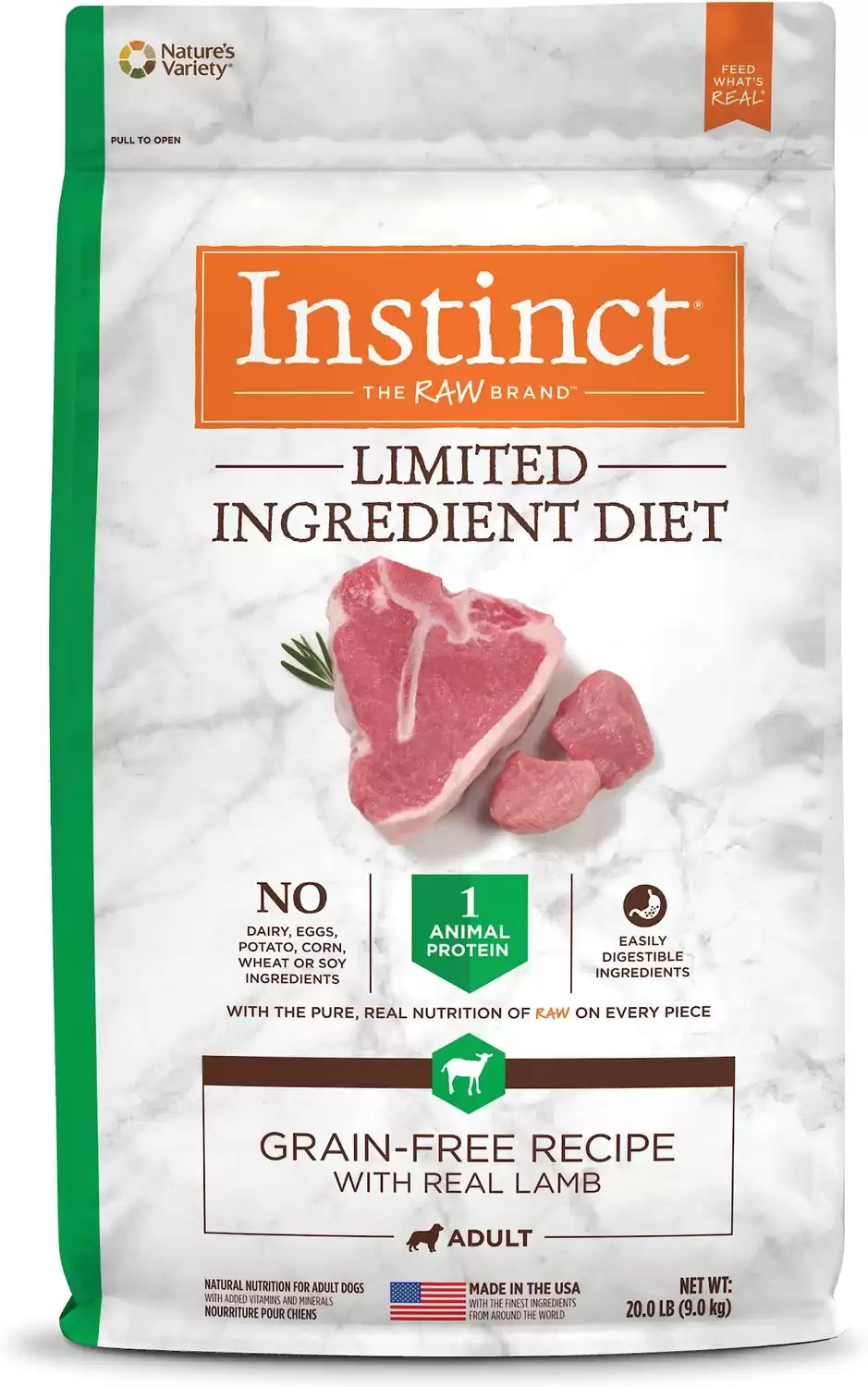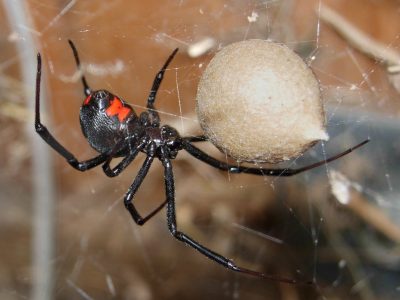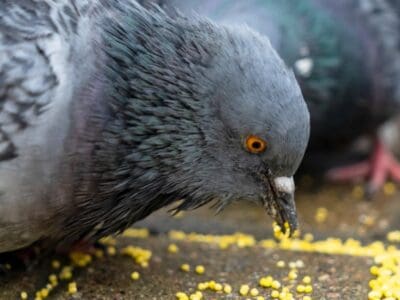Petite Goldendoodle
Canis lupus
Like their purebred parents, these dogs love the water!
Advertisement
Petite Goldendoodle Scientific Classification
- Kingdom
- Animalia
- Phylum
- Chordata
- Class
- Mammalia
- Order
- Carnivora
- Family
- Canidae
- Genus
- Canis
- Scientific Name
- Canis lupus
Read our Complete Guide to Classification of Animals.
Petite Goldendoodle Conservation Status
Petite Goldendoodle Facts
- Diet
- Omnivore
Petite Goldendoodle as a Pet:
- General Health
- Energy Level
- Shedability
- Trainability
- Intelligence
- Tendency to Chew
- Size
- Family and kid friendliness
- Yappiness / Barking
- Moderate
- Separation Anxiety
- High
- Preferred Temperature
- Average climate
- Exercise Needs
- Moderate
- Friendly With Other Dogs
- High
- Pure bred cost to own
- $1500
- Dog group
- Non-sporting
- Male weight
- 12-20 lbs
- Female weight
- 12-20 lbs
This post may contain affiliate links to our partners like Chewy, Amazon, and others. Purchasing through these helps us further the A-Z Animals mission to educate about the world's species.
View all of the Petite Goldendoodle images!
When a Petite Goldendoodle sees a swimming pool, stream, or lake, they can’t resist taking a quick dip or a long swim.
A Goldendoodle dog is a result of breeding a Golden Retriever with a standard poodle. A Petite Goldendoodle is a mix between a toy poodle and a Golden Retriever. Some Petite Goldendoodles have Cocker spaniel in their bloodline as well.
See all of our expert product reviews.
Petite Goldendoodles are part of a group called designer dogs that breeders created in the 1990s. Although it is believed that the Golden doodle was first started in the late 1960s to be used as a guide dog. Breeders wanted puppies possessing the favorable qualities of both purebred parents. These adorable dogs are members of the hybrid group.
Petite Goldendoodles are energetic, intelligent, and friendly. They are relatively small dogs that get along well with children and other dogs. Their playful nature and love of swimming make them a favorite with many families.
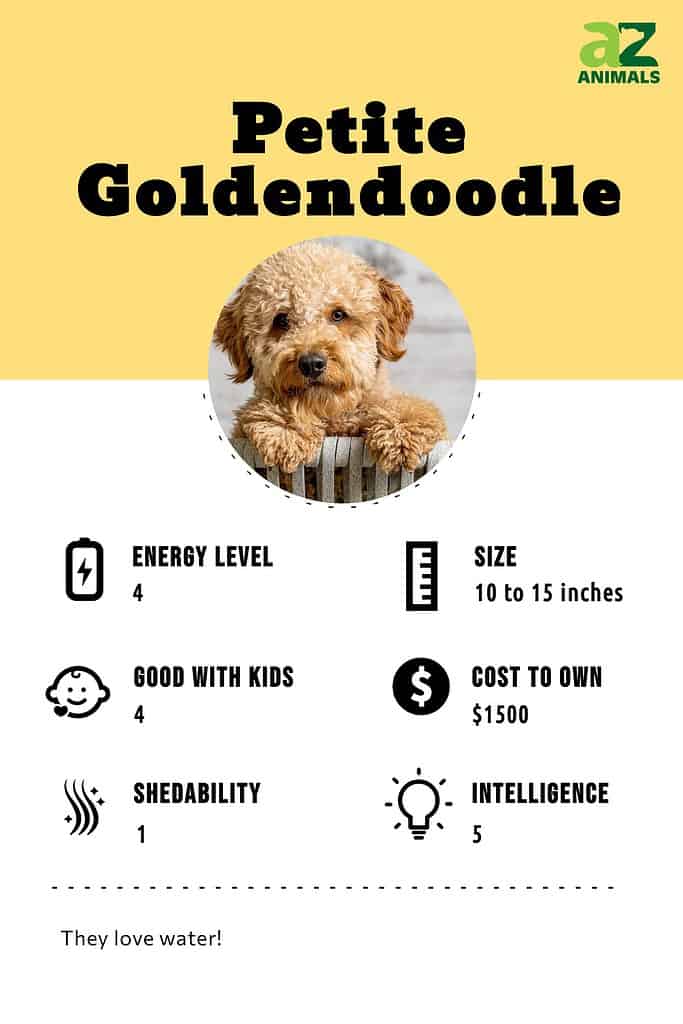
The 2 Different Types
The standard Goldendoodle sizes are the biggest classification of Goldendoodles. The largest standard can average about 24 to 26 inches in height and weighs 50 to 90 pounds. However, most Goldendoodles are about 23 inches tall and 45 pounds.
Additionally, there is a medium sizes adult Goldendoodle size which is just slightly smaller than your standard.
Furthermore, here are the two different types of petite goldendoodle and petite goldendoodle mixes:
Health and Entertainment for your Petite Goldendoodle
See all of our expert product reviews.
- Petite Goldendoodle
- Miniature Goldendoodle
A miniature Goldendoodle is the result of a mini or a toy poodle with a golden retriever or standard goldendoodle. The full-grown mini goldendoodle is usually around 13 to 20 inches in height and 15 to 35 pounds.
The petite goldendoodle is the result of a toy poodle and a mini goldendoodle or a true medium. Some breeders may not distinguish between minis and petite goldendoodles, but it’s important to understand the size difference between the two.
Petite Goldendoodles Vs Mini Goldendoodles
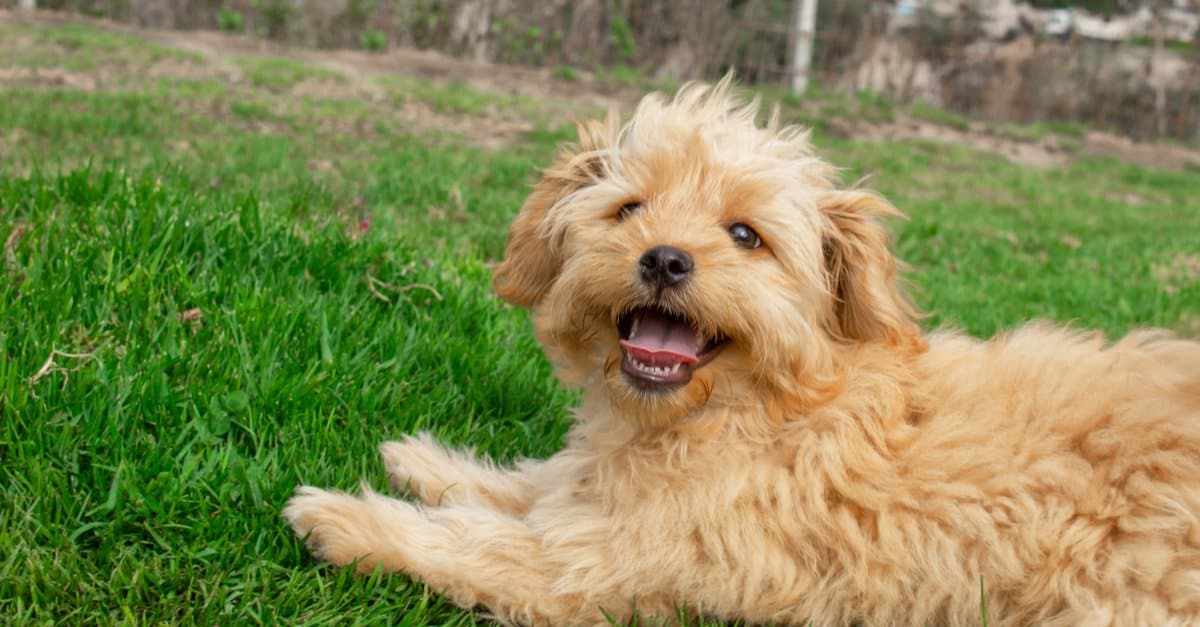
A mini Goldendoodle is slightly larger than a petite goldendoodle.
©Anasty/Shutterstock.com
While these two types of Goldendoodles share many similarities, they have some basic differences as well.
The main difference between these two hybrid dogs can be found in the size chart. In short, a Mini Goldendoodle is larger than a Petite Goldendoodle.
While a Petite Goldendoodle can grow to be 15 inches tall, a Mini Goldendoodle can reach a height of 18 inches.
Also, a Petite Goldendoodle can weigh up to 20 pounds while a Mini Goldendoodle weighs a little more at 30 pounds.
Both of these hybrid dogs have one parent who is a Golden Retriever and one who is a poodle. They are both intelligent and have a tremendous amount of energy. Plus, both types of Goldendoodles have a coat of short, curly hair.
3 Pros And Cons Of Owning A Petite Goldendoodle
| Pros! | Cons! |
|---|---|
| Good with children This hybrid dog is friendly and affectionate with children as well as adults. | Separation anxiety This social dog can experience separation anxiety if left alone for more than a couple of hours. |
| Easy to groom This dog’s coat requires a quick daily brushing to maintain its appearance. | Needs lots of exercise Petite Goldendoodles are energetic and need close to 60 minutes of exercise daily. |
| Low shedder One of the most appealing things about this dog is it sheds very little hair. | A high price Breeders charge an average price of $1500 for these hybrid puppies. |

A Petite goldendoodle can experience separation anxiety.
©SoySendra/Shutterstock.com
Size And Weight
Both males and females can grow to a height of 15 inches. Furthermore, both males and females can weigh as much as 20 pounds, full-grown. A 9-week-old puppy weighs approximately 9 pounds. These hybrid dogs are considered full-grown at around 12 months old.
| Height (Male) | 15 inches tall |
| Height (Female) | 15 inches tall |
| Weight (Male) | 20 pounds, full-grown |
| Weight (Female) | 20 pounds, full-grown |
Common Health Issues
Like most other dogs, these dogs have some common health issues. They share some of the same issues as their purebred parents. One of those issues is Patellar luxation. Patellar luxation is when a dog’s kneecap is out of alignment.
This condition causes limping, hopping, and other awkward movements. Surgery may be needed depending on the severity of this condition.
A second common health issue is Progressive Retinal Atrophy or PRA. PRA is an inherited condition that affects a dog’s vision. Unfortunately, it can lead to total blindness. Professional breeders can go to a veterinarian to test the dogs they intend to breed to see if they are carriers of PRA.
Another common health issue of this hybrid dog is allergic dermatitis. This condition causes itchy, red skin as a response to an environmental allergy. A veterinarian can conduct allergy tests on a Petite Goldendoodle to find out what’s causing the allergy and determine the best treatment.
Their most common health issues include:
- Patellar luxation
- PRA
- Allergic dermatitis
Temperament and Behavior

This breed is energetic and wants to be where the action is.
©SoySendra/Shutterstock.com
These dogs have friendly personalities and want to be wherever the action is! Their behavior can best be described as energetic. These hybrid dogs love to run, jump, play fetch, and swim among other activities.
Loyalty is one of these dogs’ most remarkable traits. Though they are small dogs, they are great at letting the household know when someone is at the door. Families with children appreciate these dogs for their affectionate, gentle nature.
How To Take Care Of A Petite Goldendoodle
Before getting one of these dogs as a family pet, it’s a good idea to learn about its dietary, healthcare, grooming, and exercise requirements. So, whether a family gets a puppy or an adult dog they know how to take the best possible care of their new addition.
The Best Dog Food For Petite Goldendoodles
Puppies and adults need different daily diets. Ensuring these dogs get certain nutrients in their diet can help to prevent some of the common health issues they suffer from. For instance, check out allergy-friendly limited-ingredient dog foods.
That’s why the best dog food for Petite Goldendoodles is Instinct Limited Ingredient Dog Food, Limited Ingredient Diet Natural Grain-Free Dry Dog Food in our opinion at A-Z Animals.
It’s free from many of the biggest allergy culprits for dogs, like grain, dairy, eggs, chicken, beef, fish, sweet potato, potato, chickpeas, corn, wheat, soy, artificial colors, and preservatives. Plus, omegas from natural salmon, supplemented with vitamin A and zinc may soothe irritated skin in your Petite Goldendoodle.
Here’s where to get Instinct Limited Ingredient Natural Grain-Free Dog Food on Chewy or Amazon.
- Limited ingredient recipe includes just one animal protein and one vegetable for pets with food sensitivities.
- Made with grass-fed lamb, an easily digestible protein that provides all the essential amino acids your pooch needs.
- Guaranteed levels of natural omegas and antioxidants promote healthy skin and coat, plus immune health.
- Made in the USA using premium ingredients from around the world, with the pure nutrition of raw in every piece.
- Never contains any grain, dairy, eggs, chicken, beef, fish, sweet potato, potato, chickpeas, corn, wheat, soy, artificial colors or preservatives.
Consider some additional dietary specifics:
Puppy food: Lean protein supports healthy joints and muscles in this small dog. DHA Omega 3 fish oil contributes to this puppy’s developing brain and vision. This is important for a dog at risk for the development of PRA. Antioxidants are good for a healthy metabolism. Fat is crucial for giving these active puppies energy for their busy days. Calcium supports healthy bones and teeth in this hybrid pup.
Adult dog food: An adult dog needs lean protein to provide it with continued support for its muscles and joints. An aging Petite Goldendoodle needs a limited amount of fat in its diet. This gives the dog energy while not adding excess weight that could contribute to the development of Patellar luxation. Vitamin A contributes to a dog’s healthy vision. Vitamin C and E are good for this dog’s immune system. Vitamin B12 helps to maintain a healthy nervous system.
Maintenance And Grooming
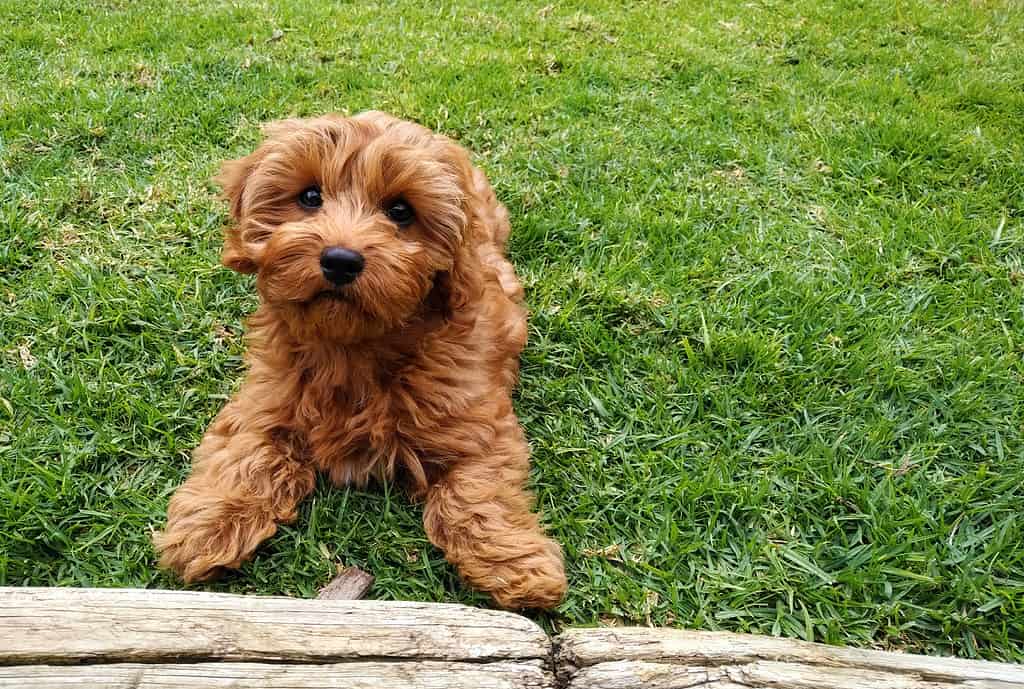
Petite Goldendoodles are low shedding but still need daily grooming to maintain their coats.
©Making Connections/ via Getty Images
How much do these dogs shed? These dogs are low shedding. However, they still need daily grooming to maintain the appearance of their beautiful coat! A slicker brush is helpful in removing loose and dead hair. A soft brush with boar hair bristles can remove any tangles and stir up natural oils making its coat shine.
These dogs are prone to allergic dermatitis. This is an allergy to something in their environment such as pollen or dust. A dog that’s scratching, biting, or chewing its skin may be suffering from this condition. A veterinarian can run tests to determine the cause of the allergy and recommend treatment.
Training
Golden Retrievers and poodles are intelligent dogs. So, it should come as no surprise that Petite Goldendoodles are intelligent, too. They are easy to train with the help of treats and words of praise. These hybrid dogs are people pleasers which also helps in their obedience training!
Labrador retrievers are intelligent dogs that are easy to train as well.
Exercise
Because these are high-energy dogs, they need 30 to 60 minutes of exercise each day. Taking this pet for a 30-minute walk in the morning as well as in the evening is one way to give it the proper amount of exercise. These lively dogs enjoy visiting dog parks, walking on park trails, or playing in a swimming pool, stream, or lake.
Look at a size chart of Goldendoodles and you’ll see that a Petite Goldendoodle is categorized as a small to medium size dog. This makes it an appropriate pet for someone who lives in an apartment.
Puppies
Like adult dogs, these puppies need lots of exercise. So, it’s important to allow these puppies to run, play and jump around in a fenced-in area. This keeps the puppies safe while they get the wiggles out!

©McKenna Boyle/Shutterstock.com
Petite Goldendoodle And Children
A family looking for a dog with a cute appearance as well as a gentle manner toward kids is very likely to be happy with these dogs. The small size of this dog is a plus for families with toddlers and very young kids.
Dogs Similar To Petite Goldendoodles
Other dogs similar to Goldendoodles include Labradoodles, Havapoos, and Labrador Retrievers.
- Labradoodle – The Labradoodle has the same friendly temperament as a Petite Goldendoodle. Also, its curly coat gives these dogs a similar appearance. But a Labradoodle grows to be much larger than the Petite Goldendoodle.
- Havapoo – This dog is part poodle like the Petite Goldendoodle and can have the same short, curly coat. However, this hybrid dog’s energy level isn’t quite as high as a Petite Goldendoodle’s.
- Labrador Retriever – Intelligence and a friendly temperament are two things this dog shares with a Petite Goldendoodle. But this purebred dog ranks higher on the size chart and has a flat coat.
Popular Names For Petite Goldendoodles
Popular names for these dogs include:
- Daisy
- Ollie
- Charlie
- Fenway
- Leroy
- Harper
- Peaches
- Tess
- Winnie
Petite Goldendoodle FAQs (Frequently Asked Questions)
How much does a Petite Goldendoodle cost to own?
Not all breeders charge the same price for their Petite Goldendoodle puppies, but the average price is $1500.
There are rescue organizations that allow people to adopt these hybrid dogs for a reasonable fee. Getting a dog from a rescue organization is a great alternative for families who don’t want to pay for puppies from breeders.
The yearly vet costs for this hybrid dog range from $300-$600.
The food cost for this small to medium-sized dog is around $30 per month. The final cost varies with the brand chosen and its price.
Are Petite Goldendoodles good with kids?
Yes, these dogs are good with children.
How long do Petite Goldendoodles live?
The lifespan of this hybrid dog is 10 to 15 years.
How big does a Petite Goldendoodle get?
A Petite Goldendoodle can weigh as much as 20 pounds and grow to a height of 15 inches from its paws to the top of its head. As a note, this dog can be at the lower end of the size chart depending on whether it inherits more genes from its Golden Retriever or its poodle parent.
What’s the difference between a Mini Goldendoodle and a Petite Goldendoodle?
Though these hybrid dogs are very similar in many ways including their appearance, the Mini Goldendoodle is larger than a Petite Goldendoodle. A Mini Goldendoodle can weigh up to 30 pounds and can reach 18 inches tall from its paws to its head.
How much is a Petite Goldendoodle?
The average price charged by breeders for a Petite Goldendoodle puppy is $1500. Rescue organizations have these dogs available to adopt for a minimal fee.
What is the smallest Petite Goldendoodle?
The smallest Goldendoodle is a Petite Goldendoodle at around 12 pounds and 10 inches tall, full-grown. This would be a Petite Goldendoodle at the lower end of the size chart.
Thank you for reading! Have some feedback for us? Contact the AZ Animals editorial team.
Sources
- American Kennel Club, Available here: https://www.akc.org/dog-breeds/golden-retriever/
- Wikipedia, Available here: https://en.wikipedia.org/wiki/Poodle
- Animalso, Available here: https://animalso.com/breeds/miniature-goldendoodle/
- Pet Health Network, Available here: https://www.pethealthnetwork.com/dog-health/dog-diseases-conditions-a-z/progressive-retinal-atrophy-dogs






